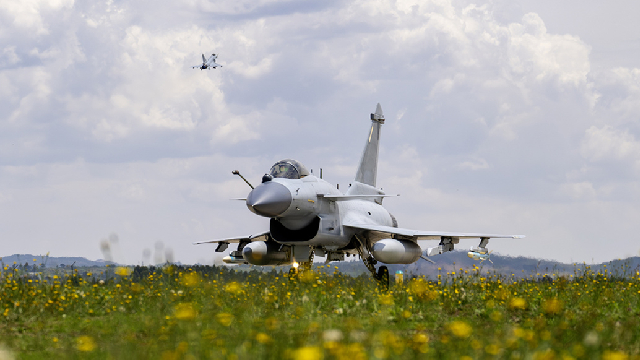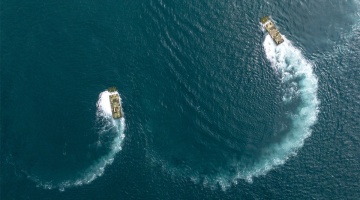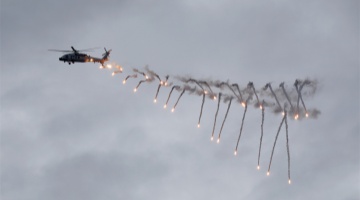By Pan Ziyang
French President Emmanuel Macron and Polish Prime Minister Donald Tusk recently signed the Treaty on Enhanced Cooperation and Friendship to strengthen bilateral defense cooperation. Both sides stated that the move is intended to reinforce, not undermine, NATO's framework and role. Some analysts believe that, against the backdrop of reduced US security commitments under the Trump administration, certain European countries are seeking security assurances through bilateral mechanisms, which highlights Europe's dilemma between reliance on NATO and the pursuit of strategic autonomy.
According to the treaty, "In the event of armed aggression on their territories, the parties shall provide mutual assistance, including by military means." While the treaty bears similarities to Article 5 of the North Atlantic Treaty on collective defense, its bilateral nature allows for a more agile response mechanism. President Macron described the treaty as a new page in France–Poland relations and stated that the two nations now share an irreversible unity.
For France, the treaty reflects multiple strategic considerations aimed at advancing European defense autonomy. The first is to reduce reliance on US security guarantees. Macron stressed that amid profound changes in the international landscape, Europe must take responsibility for its security by building a defense structure capable of rapid response and independent action. The treaty marks a crucial step toward that goal. The second objective is to expand the influence of France in Central and Eastern Europe. As a key state on NATO's eastern flank, Poland stands out among Central and Eastern European countries in terms of military size and defense spending. With the prolonged Russia–Ukraine conflict, France has come to recognize Poland's strategic value as an indispensable partner in a high-risk environment and is seeking to extend its strategic focus further into the Central and Eastern Europe.
Poland, for its part, has long maintained a high level of strategic vigilance since it shares border with the Russian exclave of Kaliningrad and faces the spillover risks from the Russia–Ukraine conflict. By deepening military cooperation with France and becoming one of its main partners, Poland has taken a significant step toward diversifying its security partnerships and building multiple layers of protection for its national security. Moreover, although the treaty does not explicitly commit to providing Poland with a "nuclear umbrella," France has expressed its willingness to open dialogue on the matter, indicating that France may aims to integrate nuclear capabilities into Europe's broader push for "nuclear autonomy," which could pave the way for potential cooperation between France and Poland in the realm of nuclear deterrence.
Analysts believe that closer France–Poland ties could help revitalize the long-stalled Weimar Triangle mechanism. Stronger bilateral cooperation between France and Poland may encourage Germany to adopt a more proactive stance on security policy, thereby restoring the strategic relevance of the France–Germany–Poland trilateral framework. Following the signing of the treaty, Tusk stated that Europe's future will largely depend on the coordination within the Weimar Triangle.
It is worth noting that while the renewed bilateral alignment between France and Poland represents a step toward building an autonomous European defense framework, it also risks undermining the confidence of European allies in NATO's multilateral security mechanism, which could erode the foundations of Europe's existing security architecture, potentially fuel heightened geopolitical tensions, and thus push the region into a paradox where the pursuit of greater security leads to increased insecurity.
(The author is from Renmin University of China)













